#utopian communes
Explore tagged Tumblr posts
Text
Today's aesthetic is utopian scholastic

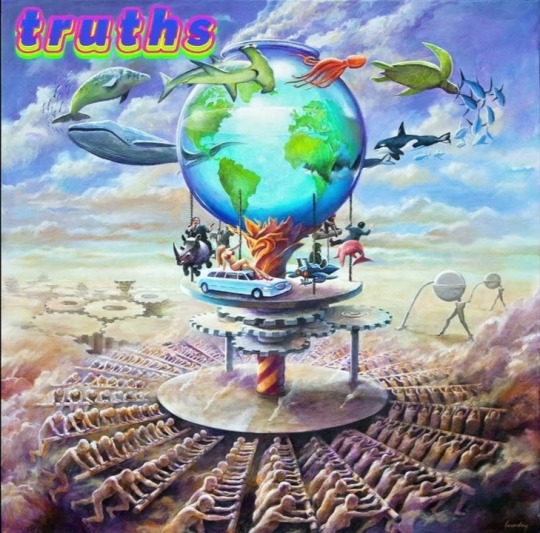
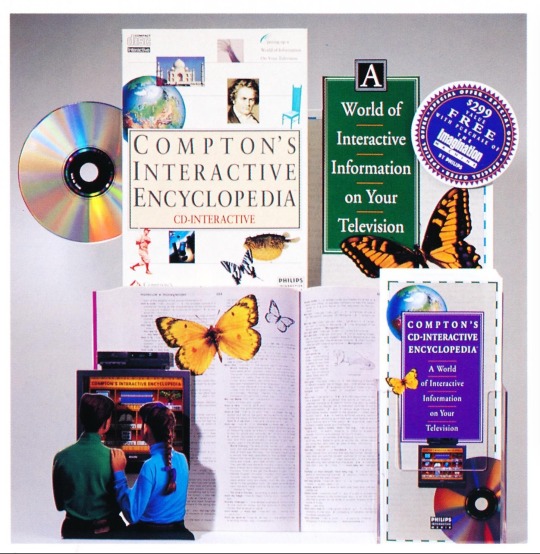
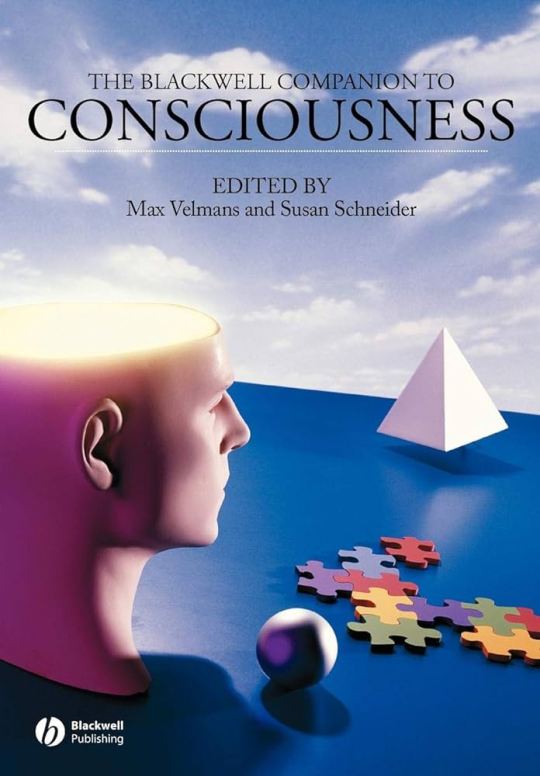

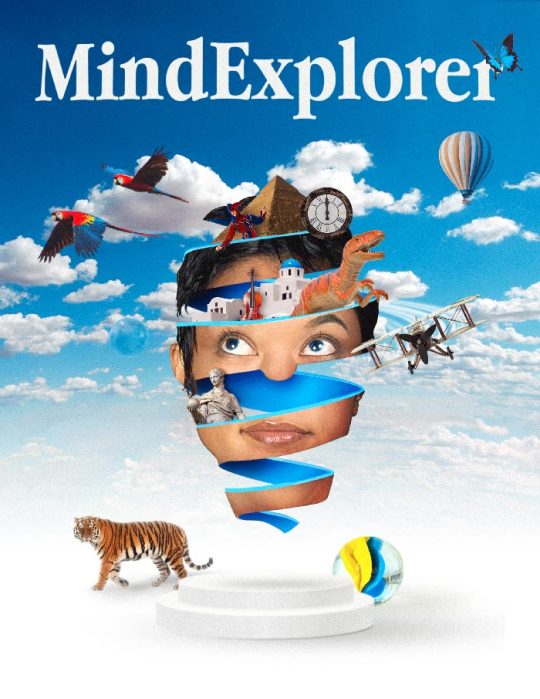
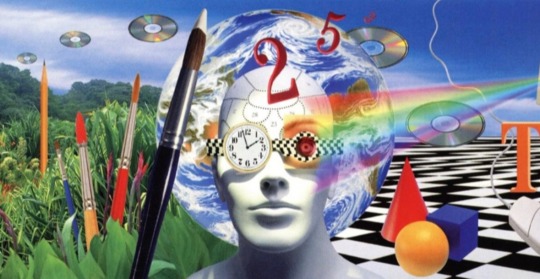
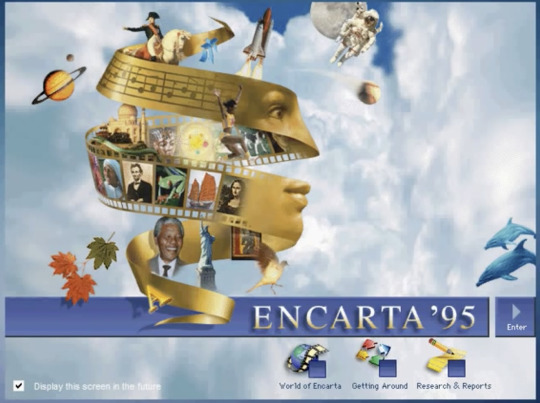
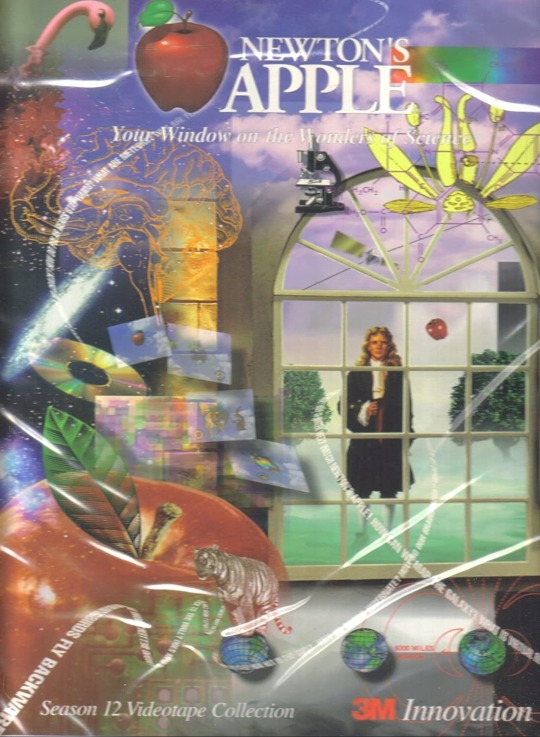

#aesthetic#aesthetic blog#aesthetics#aesthetic otd#aesthetics blog#aesthetic community#aesthetic blogs#utopian scholastic#frutiger aero
3K notes
·
View notes
Text

‧͙⁺˚*・༓☾ 🦖💿📚🌎🚀🎻 ☽༓・*˚⁺‧͙

#age regression#sfw agere#moodboard#aesthetic#agere little#sfw regression#agere community#scholastic#utopian scholastic#2000s nostalgia#agere sfw#nostalgia#agere moodboard#dino agere#dino moodboard#boy regression
261 notes
·
View notes
Text
pathologic classic is all 3 at once depending on which npc you talk to
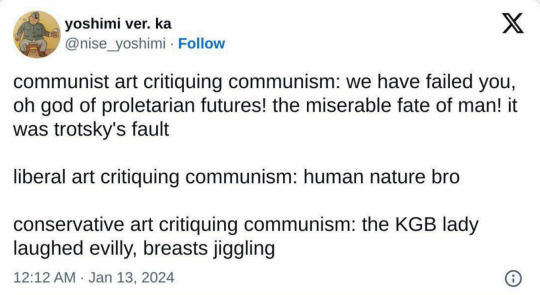
#though if i had to guess the overall intent it's probably the ''liberal'' pov#i do want to write more on the utopian=communism metaphor. it's canon according to a dev interview but overlooked i think#and there are some interesting interpretations of it#patho#mine#pathologic
225 notes
·
View notes
Text
hey so after this chapter do we get to craft a therapist ability outfit? I think Giroda needs it.
#and on that note raggy too#infinity nikki#infinity nikki spoilers#Giroda infinity nikki#dude why are the baby creatures getting all the lore#what happened to keeping the religious and political conflict in the human societies#and letting the cute little creatures live in utopian communes#\
44 notes
·
View notes
Text

#yep yep#communism#luxury beliefs#always easy to praise communism in non communist countries#what sounds good vs reality#Utopianism is mind cancer#release your adolescence#beliefs only wealthy people can afford#dumb da dumb dumb#in the abundance of water the fool is thirsty
315 notes
·
View notes
Text
When Ekko tells Heimerdinger, "It's not enough to give people what they need to survive, you have to give them what they need to live", it falls flat to me because Heimerdinger didn't even give Zaun the first part. Heimerdinger and the Council very clearly didn't even give Zaun the bare minimum in terms of support based on the air and water quality alone (nevermind most of Zaun lives in the ground too).
Frankly, the quote applies more to how Heimerdinger treated Topside, overly cautious to prevent the mistakes of the past in a way that can stifle innovation. And it's weird that when Heimerdinger puts it into practice in Zaun it's more him building elaborate toys for children vs utilities that could help out a fledgling community like the Firelights. It's giving neglectful parent that feeds kids sweets to cheer them up instead of cooking a meal.
#arcane#arcane ramble#heimerdinger#giving people joy in life is important it makes life meaningful#it's why Ekko's quote was meaningful#but heimerdinger didn't even fulfill the first part to be reminded of the latter#it feels like putting heimerdinger in the firelight treehouse is a get out if jail free card for the show to not investigate real things#heimerdinger can do in zaun bcuz the treehouse itself is a weird utopian community that's only problem is silco so he doesn't need to#help out he just needs to entertain the small children#that's nice and all but it's just backwards for him to think about giving zaunites something to live for#when he didn't even give them the means to survive in the first place
32 notes
·
View notes
Text
I’m kind of spitballing this, but: I think it might be useful to distinguish “ideal societies” as falling into the following types:
Eschatological societies are ideal societies or conditions of humanity imagined as the result of a process of divine intervention, in fulfillment of some divine process or purpose. They are telic—a product of a process working toward a definite end—but that telicity is divine, not human, and humans cannot create this society; they can only prepare for its imposition by divine forces. A useful type specimen here might be the New Jerusalem of Revelation.
Edenic societies are sort of their inverse: ideal societies springing from the unmarred or undisturbed state of nature. They are often pre-civilizational in character. They cannot be returned to because the world has irrevocably changed since their downfall, and we no longer exist in a state of innocence or wisdom sufficient to realize them. The Garden of Eden is one example; the Golden Age of Hesiod is another.
Idylls are societies or conditions of humanity that are better than our own in many ways, but not as a process of telic development or divine intervention. They’re representative of one ideal or another, but they’re not the endpoint of history or its beginning. If anything they are most useful as a tool of fiction to draw the reader into a world, without necessarily embodying a specific didactic viewpoint. The Shire feels like such a society, a modern and particularly English treatment of the pastoral setting.
Utopias are specifically ideal societies that are the endpoint of a process of historical or philosophical development. They’re conceptually final, even if not literally eschatological, because the concept usually precludes anything but trivia improvement or alteration without corrupting the utopia. They are in one sense secular eschatology; though most utopias are not presented as inevitable in the same way the eschatological end of history is. Ironically, Utopia itself might be more of an idyll than a Utopia under this scheme—it depends on how much you think Utopia represents More’s own views on how a society is to best be governed.
(The dystopia isn’t really a separate category here, it’s just an artistic inversion of the utopia. I think that for various reasons dystopias are of particular interest to modern writers, especially after the horrors of the 20th century, and they’re a way to critique or interrogate the whole concept of a Utopia. They’re not ideal societies in the same sense—they are imagined, and are usually an exploration of an *idea*, but they are not an expression of *idealism.*)
Utopias also stand out as the one member of this category that really bridges the conceptual-real divide. Like, they’re the thing people can work toward in the real world—people go out and found utopian communities all the time! Utopias can be a call to action in the way Eden or the eschaton isn’t (because both are beyond human power to create), nor even the idyll (because it’s not a culmination of a telic process). Even if you cannot ever create an actual utopia, you can (or so the hope goes) asymptotically approach it.
#taxonomizing as a hobby#I find utopias and utopian thought really interesting#especially failed real world utopian communities
48 notes
·
View notes
Text
i thought viktor had become jesus in act 1. but this. this is a whole new level
#he just. ascended to a new plane and became the wise people-healing spiritual leader of a utopian underground commune. i guess#i mean. go off queen#my posts#arcane#arcane s2#arcane season 2#arcane viktor#viktor arcane
21 notes
·
View notes
Text


one of the options on this poll is 'coping orgy,' lmao
#if I was a satyr living in an idyllic utopian woodland hedonist commune I wouldn't have these particular stressors in the first place#[nyssa gently placing a hand on my arm] weed is also nice#actually TODAY I've mostly been in a zenlike state of dissociation#too much stress in the leadup and now all systems are overloaded and in full shutdown#don't talk to me about it tho. lol.#I keep saying I'm gonna go play skyrim and then hanging around to draw stuff instead#a very dangerous game because Scrolling is also on the draw stuff machine#ough....#my OCs#nyssa
23 notes
·
View notes
Text
In a world where there’s nothing left to conquer but boredom, how does play evolve?
Song - NFL on FOX Theme (Instrumental King)
#tale foundry#writing community#writing inspiration#writers of tumblr#writers on tumblr#youtube#space art#17776 football#17776#what football will look like in the future#jon bois#speculative fiction#science fiction#true utopia#utopia#utopian fiction#in a perfect world
141 notes
·
View notes
Text
My bookstore confession is I hid a book about the effect of the Paris Commune on the development of Impressionism in the philosophy section and whenever they assign me like 3 hours of shelf maintenance I hide in the stacks for like 15-20 minutes at a time and read it instead of working
#I hate doing work no matter how easy or fulfilling#On the utopian commune I would be a useless eater. I'm disabled and lazy#I want to sit on my ass and read#Ok on the utopian commune I would help cook probably#And do laundry I like doing laundry#But everything else. Absolutely not
24 notes
·
View notes
Text
EVERYONE GET UP AND TELL ME WHAT YOU DEFINE AS UTOPIA!!!
i love hearing about visions for an ideal world, it gives us a blueprint to look back on when we're in the position to move forward!! SO tell me all about your vision. tell me how your society functions, how everything looks. tell me about the potential celebrations and holidays that would sprout from it. tell me what things there are to do. tell me what things you'd erase from this current world. tell me about the places, tell me about the shops and the areas that just exist for fun. tell me about the entertainment, the hobbies, the groups. TELL ME EVERYTHING!! I WANNA KNOW THINGS!!!
#one look through the solarpunk/hopepunk tags pretty much defines my ideal world#BUT I WANNA HEAR YOUR DEFINITIONS!!!#utopia#solarpunk#solar punk#sustainability#cozypunk#hopepunk#hope punk#hopecore#faith in humanity#community building#optimism#eutopia#utopian#utopianism#eutopian#eutopianism
9 notes
·
View notes
Text
While the finale had more overt examples of choosing to die for yourself rather than for a god, the moment that made the biggest impression on me was actually during the electrical workers' strike where instead of chanting the mantra of the wound tree or even invoking a god to curse their name, the workers' battle cry was furiously referencing the number of kilowatt hours the company thought their lives were worth. Saying no I'm not dying for a god, I'm not even dying for spite, I'm dying insisting that my life and the lives of the people around me are worth more than what you say they are.
And then, of course, the lights come back on anyway. But they still said it.
#kat listens to tsv#I will have a longer post about the show tomorrow. I am Brooding#tsv and gb both suggest the way out of our capitalist nightmare is a utopian commune#which is nice in theory but i am raising my disabled/chronically ill eyebrows a bit#but tbf. paige's commune didn't have high hopes of survival
10 notes
·
View notes
Text
Regardless of all the opinions out there, while I very much care about the current ongoings I also very much feel that if you waste your vote... idk. wasting your vote doesn't do anything either imo i guess. I ain't talking about threatening to withhold your vote, I'm talking about not voting at all or using your vote for social posturing.
I don't know if I'm biased or jaded because I live in a deep red state that is actively cutting its social service programs but like. I'm very aware of how much worse it can get because what I am dealing with now, more progressive states would be looking at if a certain person won. many of these promises that are being made, a chunk of them could have and should have been done and I will always remember that. but I also recognize as a Native American in a deep red state, a state that is actively hostile right now to the multiple tribes in it, what could potentially happen to us if Trump wins.
You can't give somebody a ride in your car if your car is broke down, I find it difficult at times to be as active about other issues when my own sovereignty as a Native American, and my personal rights as someone with a uterus, are on the chopping block. I'm not going to be able to help anybody if I'm reduced to property and neither are you - you need to fight in all methods available to you.
#I'm also tired of this insistence on... idk the word but utopianism i guess#it's a major issue and leftist circles - particularly from people that aren't even active in their own communities#and it very much reminds me of a level of depression where a person never challenges or forces themself to do anything#because they talk themselves out of it constantly
5 notes
·
View notes
Text
“Like everything based on the writings of Karl Marx—seeing oppressors and colonial struggles everywhere—DEI was doomed to fail. The uniformity of thought known as intersectionality, fostered by DEI, meant all oppressed people must support all others who are oppressed. But that idea burst on Oct. 7 when Hamas raped, murdered and kidnapped Israelis. Many liberals, especially Jewish ones, couldn’t support genocidal “colonized” terrorists. Pop! The long march is in retreat.
By the way, ESG, or investing based on “environmental, social and governance” principles, peaked last June, when BlackRock CEO Larry Fink said he would stop using “the word ESG anymore, because it’s been entirely weaponized.” Never mind that performance of ESG funds has been sketchy and that BlackRock had been adding the label “sustainable” or “ESG” to funds and charging up to five times as much. Then a study published in December by Boston University’s Andrew Kingfound “no reliable evidence for the proposed link between sustainability and financial performance.” Pop!
Most offensive to me was DEI’s devious underlying agenda: societal design. 𝐁𝐥𝐢𝐧𝐝𝐞𝐝 𝐛𝐲 𝐟𝐚𝐧𝐚𝐭𝐢𝐜𝐚𝐥 𝐝𝐞𝐯𝐨𝐭𝐢𝐨𝐧, 𝐚𝐜𝐭𝐢𝐯𝐢𝐬𝐭𝐬 𝐰𝐞𝐫𝐞 𝐩𝐚𝐰𝐧𝐬 𝐟𝐨𝐫 𝐭𝐡𝐞 𝐜𝐚𝐮𝐬𝐞 𝐨𝐟 𝐫𝐞𝐬𝐡𝐚𝐩𝐢𝐧𝐠 𝐭𝐡𝐞 𝐰𝐨𝐫𝐥𝐝 𝐢𝐧𝐭𝐨 𝐚 𝐜𝐨𝐥𝐥𝐞𝐜𝐭𝐢𝐯𝐞 𝐮𝐭𝐨𝐩𝐢𝐚 𝐭𝐨 𝐛𝐞 𝐫𝐮𝐧, 𝐨𝐟 𝐜𝐨𝐮𝐫𝐬𝐞, 𝐛𝐲 𝐩𝐫𝐨𝐠𝐫𝐞𝐬𝐬𝐢𝐯𝐞, 𝐬𝐞𝐥𝐟-𝐢𝐝𝐞𝐧𝐭𝐢𝐟𝐲𝐢𝐧𝐠 𝐞𝐥𝐢𝐭𝐞𝐬. That was the “my truth” that Ms. Gay invoked on her exit. Critical theories and Marxist techniques would take power from you and me, using big government as the enforcer.
The new societal design, embedded in DEI and ESG, envisioned idyllic communal progress. 𝐇𝐢𝐬𝐭𝐨𝐫𝐲 𝐬𝐡𝐨𝐰𝐬 𝐭𝐡𝐢𝐬 𝐧𝐞𝐯𝐞𝐫 𝐰𝐨𝐫𝐤𝐬 𝐛𝐞𝐜𝐚𝐮𝐬𝐞 𝐩𝐨𝐰𝐞𝐫 𝐜𝐨𝐫𝐫𝐮𝐩𝐭𝐬. Diversity meant ideological conformity. Equity meant discrimination. Inclusion meant blurring the sexes. Men winning women’s athletic events would be considered normal. It was all theatrics, like the tampons I’ve seen in men’s bathrooms on Ivy League campuses. Somewhere George Orwell is rolling on the floor laughing.
One goal of progressive societal design is to shrink—depopulation. Twenty-somethings now question having children. Net zero and degrowth, both World Economic Forum approved, are pushed via energy myths: carbon bad, cows bad. A plant-based chicken in every pot and two electric cars in every garage. They envy the merit-touting rich, shout “inequality” and wear “Tax the Rich” dresses. They tear down statues to erase history. How did we let this happen?
𝐖𝐡𝐢𝐥𝐞 𝐌𝐚𝐫𝐱𝐢𝐬𝐦 𝐢𝐬 𝐚 𝐦𝐞𝐚𝐧𝐬 𝐨𝐟 𝐠𝐚𝐢𝐧𝐢𝐧𝐠 𝐩𝐨𝐰𝐞𝐫 𝐭𝐨 𝐢𝐦𝐩𝐥𝐞𝐦𝐞𝐧𝐭 𝐬𝐨𝐜𝐢𝐞𝐭𝐚𝐥 𝐝𝐞𝐬𝐢𝐠𝐧, 𝐢𝐭 𝐪𝐮𝐢𝐜𝐤𝐥𝐲 𝐭𝐮𝐫𝐧𝐬 𝐚𝐮𝐭𝐡𝐨𝐫𝐢𝐭𝐚𝐫𝐢𝐚𝐧. There was very little free speech at Harvard—the Foundation for Individual Rights and Expression ranked it last of all colleges last year. Those against the societal-design agenda were shouted down. Dissent was met with accusations of privilege or cancellation. Conform or be cast out. On a larger scale, the Biden administration co-opted social media to censure opposing views.
I, like most Americans, am for diversity, but not when it’s forced or mandated. In a 2017 interview, Mr. Fink admitted BlackRock would use DEI tactics to “force behaviors” of corporations on “gender or race,” including via management compensation. Now that’s power.
𝐓𝐡𝐢𝐬 𝐩𝐨𝐰𝐞𝐫 𝐢𝐧𝐞𝐯𝐢𝐭𝐚𝐛𝐥𝐲 𝐥𝐞𝐚𝐝𝐬 𝐭𝐨 𝐚 𝐦𝐚𝐫𝐜𝐡 𝐨𝐟 𝐢𝐧𝐭𝐞𝐥𝐥𝐞𝐜𝐭𝐮𝐚𝐥 𝐜𝐨𝐫𝐫𝐮𝐩𝐭𝐢𝐨𝐧 𝐭𝐡𝐫𝐨𝐮𝐠𝐡 𝐢𝐧𝐬𝐭𝐢𝐭𝐮𝐭𝐢𝐨𝐧𝐬, 𝐰𝐡𝐢𝐜𝐡 𝐰𝐞’𝐯𝐞 𝐬𝐞𝐞𝐧 𝐚𝐭 𝐇𝐚𝐫𝐯𝐚𝐫𝐝, 𝐭𝐡𝐞 𝐁𝐢𝐝𝐞𝐧 𝐚𝐝𝐦𝐢𝐧𝐢𝐬𝐭𝐫𝐚𝐭𝐢𝐨𝐧 𝐚𝐧𝐝 𝐞𝐥𝐬𝐞𝐰𝐡𝐞𝐫𝐞. Does national security adviser Jake Sullivan really care about equity or climate change? It polled well and put him back in power to implement his own societal design via “industrial strategy.”
𝐓𝐡𝐞 𝐠𝐨𝐨𝐝 𝐧𝐞𝐰𝐬 𝐢𝐬 𝐭𝐡𝐚𝐭 𝐞𝐜𝐨𝐧𝐨𝐦𝐢𝐜𝐬 𝐞𝐯𝐞𝐧𝐭𝐮𝐚𝐥𝐥𝐲 𝐨𝐮𝐭𝐥𝐚𝐬𝐭𝐬 𝐭𝐡𝐞 𝐜𝐨𝐧𝐭𝐫𝐨𝐥 𝐟𝐫𝐞𝐚𝐤𝐬. 𝐂𝐞𝐧𝐭𝐫𝐚𝐥 𝐩𝐥𝐚𝐧𝐧𝐢𝐧𝐠 𝐥𝐨𝐬𝐞𝐬. 𝐑𝐞𝐚𝐥 𝐥𝐢𝐟𝐞 𝐢𝐬 𝐚𝐛𝐨𝐮𝐭 𝐦𝐚𝐫𝐤𝐞𝐭𝐬 𝐭𝐡𝐚𝐭 𝐞𝐯𝐞𝐫𝐲 𝐝𝐚𝐲 𝐭𝐫𝐚𝐧𝐬𝐦𝐢𝐭 𝐭𝐫𝐢𝐥𝐥𝐢𝐨𝐧𝐬 𝐨𝐟 𝐩𝐫𝐢𝐜𝐞 𝐬𝐢𝐠𝐧𝐚𝐥𝐬 𝐨𝐟 𝐡𝐮𝐦𝐚𝐧 𝐝𝐞𝐬𝐢𝐫𝐞𝐬. Those prices inform production much better than any government bureaucrat or Harvard professor. Societal design—remember Lyndon B. Johnson’s Great Society?—requires government control. I’ll take freedom.
Preferred pronouns are fading. College admissions, and maybe hiring, based on race is illegal. DEI departments are being deconstructed. But while the DEI movement may have peaked, like that Monty Python character, it’s not dead yet. 𝐓𝐡𝐞 𝐟𝐞𝐯𝐞𝐫𝐢𝐬𝐡 𝐰𝐡𝐢𝐧𝐢𝐧𝐠 𝐨𝐟 𝐭𝐡𝐨𝐬𝐞 𝐠𝐫𝐚𝐬𝐩𝐢𝐧𝐠 𝐟𝐨𝐫 𝐭𝐡𝐞 𝐥𝐚𝐬𝐭 𝐫𝐞𝐢𝐧𝐬 𝐨𝐟 𝐩𝐨𝐰𝐞𝐫 𝐰𝐢𝐥𝐥 𝐩𝐫𝐨𝐛𝐚𝐛𝐥𝐲 𝐠𝐞𝐭 𝐰𝐨𝐫𝐬𝐞 𝐛𝐞𝐟𝐨𝐫𝐞 𝐃𝐄𝐈 𝐞𝐯𝐞𝐧𝐭𝐮𝐚𝐥𝐥𝐲 𝐝𝐢𝐞𝐬 𝐰𝐢𝐭𝐡 𝐚 𝐰𝐡𝐢𝐦𝐩𝐞𝐫.”
— Andy Kessler//WSJ
#wsj#thank god#dei must die#regressive ideology#luxury beliefs#striver class parroting of fashionable ideas that never work for working class and poor people#plantationeering 2.0#pseudo white guilt religion#society#Utopianism#elitism#Orwellian#Cadillac communism#equality NOT equity#reality wins#human nature#control#social engineering#emotionalism#wef#world economic forum#Andy Kessler#wall streeet journal#Marxism#apparatchiks#racism in virtuous looking clothing#pseudointellectualism#dehumanizing socially regressive mindfuck#diversity equity and inclusion#dei
23 notes
·
View notes
Text


(FT; a shipkid between my sona and Godfield, plus a shipkid with smugsun too) ((I'll think of names soon just wait cause I'm a lil' stupid))

⊂⊃⊂⊃⊂⊃⊂⊃
likes and reblogs are appreciated!
⊂⊃⊂⊃⊂⊃⊂⊃
#slug.png#utopian lover and colorful creation#sona x smug sun#roblox mugen#godfield#self ship community#self shipping#self ship#selfshipper#you see it's pretty funny cause both of them are demi-gods#and both have dads who ARE gods#funny it happened twice huh??#anyways more selfship content soon :3
7 notes
·
View notes